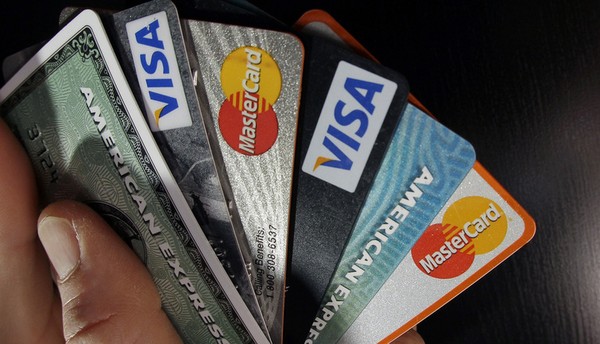Understanding the psychology of consumption is essential, especially when examining how Americans use their credit cards. This topic reveals a lot about spending habits, societal influences, and the underlying psychological factors driving credit card usage. The entanglement of psychology and finance paints a fascinating picture of consumer behavior, providing insights into why and how people swipe their cards for diverse transactions.
Anúncios
Credit cards have become ubiquitous in American culture, serving as more than just a means of payment. They represent convenience, security, and sometimes a status symbol. Exploring these aspects helps us comprehend the heavy reliance on these financial tools and the implications for personal finance and the broader economy.
The allure of credit cards

Credit cards provide a level of convenience that cash cannot match. The ability to make purchases without having physical currency on hand, especially in emergencies, appeals to many Americans. This ease of use significantly contributes to their widespread adoption and frequent usage.
Anúncios
Another crucial aspect is the security that credit cards offer. Unlike cash, which, if lost, is gone forever, credit cards come with fraud protection and the possibility of disputing unauthorized transactions. This security blanket makes them a safer option, contributing to their popularity.
The psychological impact of credit card rewards
The rewards programs offered by credit cards are a significant factor in their appeal. Points, miles, and cash-back rewards create a psychological incentive for consumers to use their cards frequently. This phenomenon, known as the reward effect, triggers a sense of accomplishment and pleasure, conditioning users to prefer card transactions over cash ones.
These rewards play directly into the human brain’s reward system, releasing dopamine and creating positive reinforcement. As individuals rack up points, they experience satisfaction and an eagerness to continue this behavior.
The societal influence on credit card usage
The way society views credit cards and their usage plays a significant role in consumer behavior. In America, creditworthiness is often tied to one’s ability to manage and utilize credit cards effectively. A high credit score, which is crucial for obtaining loans and favorable interest rates, is partially dependent on responsible credit card use.
This societal pressure drives many Americans to use credit cards regularly, even if they are inclined to stick to a cash-only system. The importance placed on credit history and scores can lead to a culture where credit card usage is not just a financial decision but a social expectation.
The role of marketing in credit card adoption
Marketing plays a pivotal role in shaping how credit cards are perceived and used. Credit card companies invest heavily in marketing strategies that highlight the benefits and rewards of their cards, creating a powerful allure for potential users. These campaigns often emphasize the convenience, security, and perks that come with credit card usage.
Promotional offers such as zero percent interest rates, sign-up bonuses, and exclusive discounts are designed to attract new users and encourage existing ones to spend more. This type of marketing leverages psychological tactics, such as the fear of missing out (FOMO) and the appeal of instant gratification, to drive consumer behavior.
Cultural factors influencing credit card use
Culture significantly influences how credit cards are perceived and used. In America, the culture of consumerism and the emphasis on credit scores shape credit card usage patterns. The societal norm of living beyond one’s means and the pressure to maintain a high credit score can lead to increased reliance on credit cards.
Moreover, credit cards are often seen as a symbol of financial independence and success. This cultural perception can drive individuals to use credit cards as a means of demonstrating their financial status and achieving societal approval.
Developing healthy credit card habits
Building healthy credit card habits is essential for maintaining financial stability and well-being. Understanding the psychological and societal influences on credit card usage is the first step towards achieving this goal. By recognizing the triggers and influences that drive their behavior, consumers can develop strategies to manage their credit card usage more effectively.
Establishing a budget and sticking to it is one of the most effective ways to manage credit card usage. A budget helps individuals keep track of their spending, avoid unnecessary purchases, and ensure that they can pay off their balances in full each month.
Education and awareness
Education and awareness are crucial for fostering responsible credit card usage. Financial literacy programs and resources can equip individuals with the knowledge and skills they need to manage their credit cards effectively. Understanding the terms and conditions of their credit cards, including interest rates and fees, is essential for making informed decisions.
Moreover, awareness campaigns that highlight the psychological and societal factors influencing credit card usage can help consumers recognize and resist these influences. By promoting a culture of financial responsibility and mindfulness, such campaigns can contribute to healthier credit card habits at the individual and societal levels.
Seeking professional advice
In some cases, seeking professional advice can be beneficial for managing credit card usage. Financial advisors and credit counselors can provide personalized guidance and support, helping individuals develop effective debt management strategies and achieve their financial goals.
Professional advice can be particularly valuable for those struggling with credit card debt. Financial experts can help individuals understand their options, negotiate with creditors, and create a realistic plan for paying off their balances. This support can alleviate the stress and anxiety associated with debt and pave the way for financial recovery.
By taking advantage of professional resources, individuals can gain a deeper understanding of their financial situation and receive tailored advice that meets their specific needs. This proactive approach can lead to healthier credit card habits and long-term financial success.
